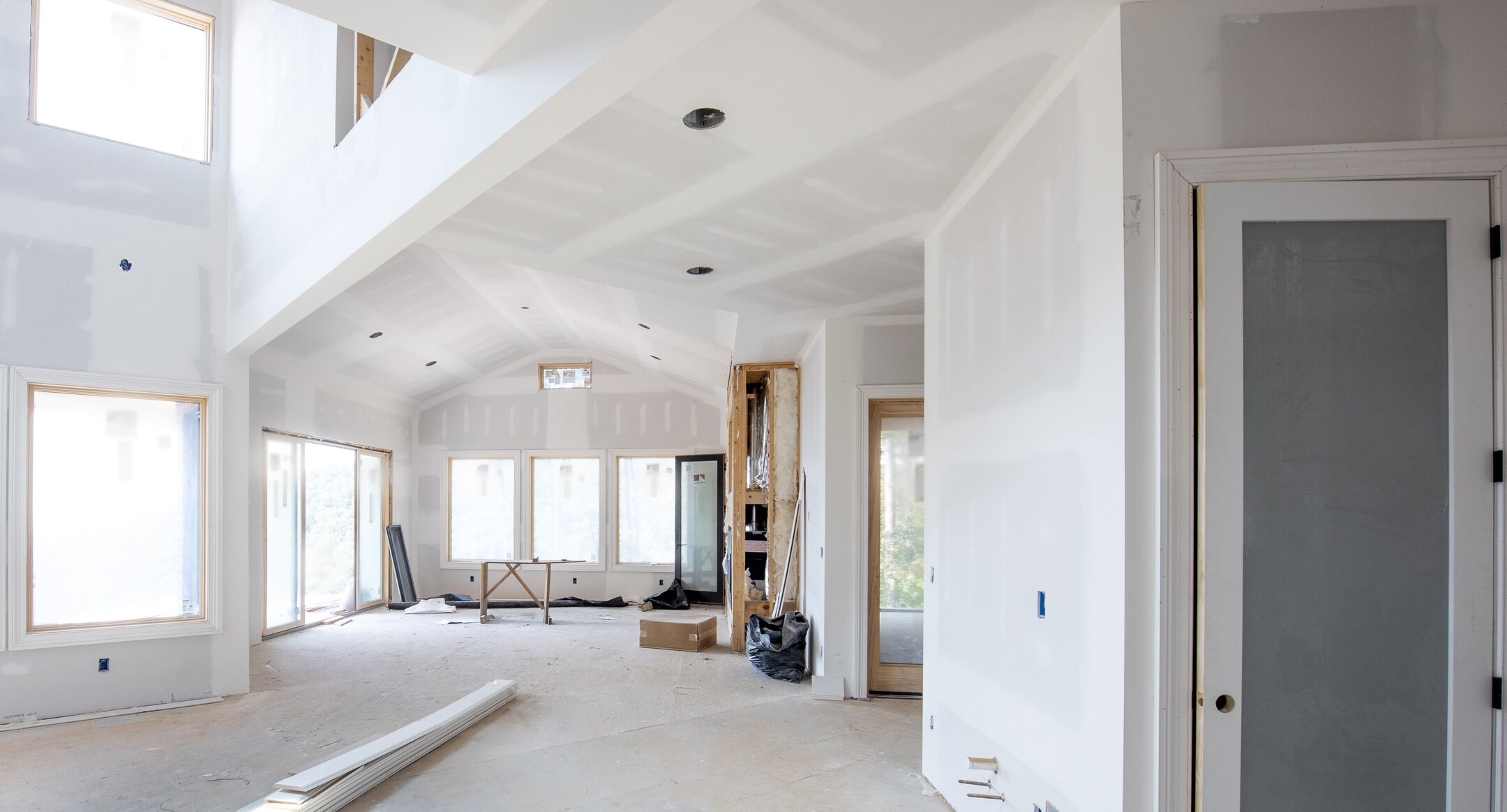Home>Renovation & DIY>Home Renovation Guides>How To Open A Home Improvement Business


Home Renovation Guides
How To Open A Home Improvement Business
Published: December 22, 2023
Learn how to start and grow a successful home improvement business with our comprehensive home renovation guides. Get expert tips and strategies to launch your venture today!
(Many of the links in this article redirect to a specific reviewed product. Your purchase of these products through affiliate links helps to generate commission for Storables.com, at no extra cost. Learn more)
Introduction
Congratulations on taking the first step toward starting your own home improvement business! Whether you’re a skilled tradesperson looking to strike out on your own or an entrepreneur with a passion for renovation, venturing into the world of home improvement can be an exciting and rewarding journey. As you embark on this path, it’s essential to equip yourself with the knowledge and tools necessary to succeed in this competitive industry.
Starting a home improvement business involves a combination of craftsmanship, business acumen, and a keen understanding of your target market. This guide will walk you through the essential steps to help you establish and grow your business, from conducting thorough research and planning to navigating legal and financial considerations, and from crafting a solid marketing strategy to effectively managing and expanding your operations.
Throughout this guide, we’ll explore the key aspects of launching and running a successful home improvement business, offering practical insights and actionable advice to empower you on your entrepreneurial journey. So, let’s dive in and discover the fundamental elements that will set you on the path to building a thriving home improvement enterprise.
Key Takeaways:
- Research and plan thoroughly before starting a home improvement business to understand the market, define your niche, and create a solid business plan for long-term success.
- Focus on client relationships, quality workmanship, and strategic growth initiatives to manage and expand your home improvement business effectively, ensuring sustained success and community impact.
Read more: How To Market Your Home Improvement Business
Research and Planning
Before diving headfirst into the world of home improvement entrepreneurship, it’s crucial to conduct comprehensive research and develop a well-thought-out plan. This phase serves as the foundation for your business and can significantly impact its long-term success. Here’s how to approach the research and planning stage:
Understanding the Market
Begin by gaining a deep understanding of the local market for home improvement services. Research the demand for various types of renovations, the preferences of homeowners, and the competitive landscape. Identify the most sought-after services, such as kitchen remodels, bathroom renovations, or outdoor living space enhancements, to tailor your offerings to the market’s needs.
Defining Your Niche
Consider specializing in a particular niche within the home improvement industry. Whether it’s eco-friendly renovations, historic home restorations, or modern design makeovers, carving out a niche can set your business apart and attract a dedicated clientele seeking specialized expertise.
Creating a Business Plan
Develop a comprehensive business plan that outlines your company’s mission, target market, services offered, marketing strategy, and financial projections. A well-crafted business plan not only serves as a roadmap for your business but also demonstrates your professionalism and commitment to potential investors and lenders.
Building a Network
Establish connections with suppliers, subcontractors, and other professionals in the home improvement industry. Cultivating a reliable network of contacts can provide access to quality materials, skilled labor, and valuable partnerships, all of which are essential for the success of your business.
Financial Projections
Conduct a thorough analysis of the costs involved in launching and operating your home improvement business. Calculate startup expenses, ongoing operational costs, and projected revenue to determine the financial feasibility of your venture. This will also help you set pricing that covers your expenses while remaining competitive in the market.
By dedicating time to research and plan your home improvement business, you can lay a solid groundwork for future growth and sustainability. Next, we’ll delve into the legal and financial considerations that are integral to establishing a successful enterprise in the home improvement industry.
Legal and Financial Considerations
As you embark on your journey to establish a home improvement business, navigating the legal and financial aspects is paramount to ensuring compliance, mitigating risks, and fostering a stable financial foundation. Here are the key considerations to address in this critical phase:
Business Structure and Licensing
Choose a suitable legal structure for your business, such as a sole proprietorship, partnership, limited liability company (LLC), or corporation. Each structure has distinct implications for taxation, liability, and operational flexibility. Additionally, obtain the necessary licenses and permits required to operate a home improvement business in your jurisdiction.
Read more: How To Open A Mini Golf Business
Insurance Coverage
Secure comprehensive insurance coverage to protect your business, employees, and clients. Consider obtaining general liability insurance, workers’ compensation insurance, and bonding to safeguard against unforeseen accidents, property damage, or legal claims that may arise during your projects.
Financial Management
Establish sound financial practices and systems to effectively manage your business’s finances. This includes setting up business banking accounts, tracking income and expenses, maintaining accurate records, and implementing a budget to monitor and control your cash flow.
Tax Obligations
Understand the tax obligations specific to your home improvement business, including income tax, sales tax, and payroll taxes if you have employees. Consult with a qualified accountant or tax professional to ensure compliance with tax laws and to optimize your business’s tax strategy.
Contractual Agreements
Develop clear and comprehensive contractual agreements for your projects to protect both your business and your clients. Clearly outline the scope of work, project timelines, payment terms, warranties, and dispute resolution procedures to establish transparent and professional client relationships.
Read more: How To Start An Insulation Business
Legal Compliance
Stay informed about local building codes, zoning regulations, and industry standards to ensure that your projects adhere to legal requirements. Compliance with these regulations not only demonstrates your commitment to quality and safety but also safeguards your business from potential legal liabilities.
By addressing these legal and financial considerations, you can fortify the operational and financial framework of your home improvement business, setting the stage for sustainable growth and success. Next, we’ll explore the crucial aspects of marketing and advertising to effectively promote your services and attract clients.
Marketing and Advertising
Effective marketing and advertising strategies are essential for promoting your home improvement business, attracting clients, and establishing a strong brand presence in the competitive market. Here’s how to craft a compelling marketing plan to showcase your services and reach potential customers:
Professional Branding
Develop a professional brand identity that reflects the values and quality of your home improvement business. This includes creating a memorable logo, defining brand colors and typography, and crafting a consistent brand voice that resonates with your target audience.
Online Presence
Establish a robust online presence by creating a professional website that showcases your portfolio, services, and client testimonials. Utilize search engine optimization (SEO) techniques to ensure that your website ranks well in search engine results, making it easier for potential clients to find you online.
Read more: How To Start A Senior Home Safety Business
Social Media Engagement
Engage with potential clients and industry professionals through social media platforms such as Facebook, Instagram, and Houzz. Share captivating before-and-after photos of your projects, provide valuable home improvement tips, and interact with your audience to build a loyal following and generate leads.
Client Testimonials and Referrals
Leverage the power of satisfied clients by showcasing their testimonials on your website and marketing materials. Encourage referrals by offering incentives to clients who refer new business to you, fostering a network of satisfied clients who become advocates for your services.
Local Networking and Partnerships
Participate in local networking events, home expos, and industry trade shows to connect with potential clients and establish partnerships with real estate agents, interior designers, and other professionals in the home improvement ecosystem. Building a strong local network can lead to valuable referrals and collaborations.
Targeted Advertising
Consider targeted advertising through online platforms such as Google Ads and social media advertising to reach specific demographics and geographical areas. Tailor your ad content to resonate with the needs and aspirations of your target audience, driving qualified leads to your business.
By implementing a well-crafted marketing and advertising strategy, you can elevate the visibility of your home improvement business and attract clients who are seeking your expertise and craftsmanship. In the next section, we’ll delve into the practical steps involved in setting up your home improvement business to bring your vision to life.
Read more: How To Save For Home Improvements
Setting Up Your Home Improvement Business
Setting up your home improvement business involves a series of strategic decisions and practical steps to bring your vision to fruition. From establishing a professional workspace to procuring essential tools and equipment, here’s a comprehensive guide to setting up your home improvement business:
Business Location and Workspace
Determine whether you will operate your business from a dedicated office space, a home office, or a workshop. Consider factors such as convenience for clients, zoning regulations, and the space requirements for your tools and equipment.
Tools and Equipment
Invest in high-quality tools and equipment specific to your area of expertise, whether it’s carpentry, plumbing, electrical work, or general contracting. Ensure that your tools are well-maintained and up to industry standards to deliver exceptional results for your clients.
Supplier Relationships
Establish relationships with reliable suppliers for construction materials, fixtures, and other necessary components for your projects. Building strong partnerships with suppliers can lead to favorable pricing, timely deliveries, and access to a wide range of quality materials.
Read more: How To Get Home Improvement Leads
Business Management Software
Implement business management software to streamline administrative tasks, project management, invoicing, and client communication. Utilizing specialized software can enhance efficiency and organization, allowing you to focus on delivering exceptional home improvement services.
Employee Recruitment and Training
If you plan to hire employees, develop a structured recruitment process to attract skilled and dedicated professionals to join your team. Provide comprehensive training to ensure that your employees adhere to industry best practices and uphold the standards of your business.
Client Contracts and Documentation
Create standardized contract templates and documentation to formalize agreements with your clients. Clearly outline project details, timelines, payment schedules, and any specific terms and conditions to establish transparent and professional relationships with your clients.
Safety Protocols and Compliance
Prioritize the safety of your team and clients by implementing robust safety protocols and ensuring compliance with industry regulations. Invest in safety training, provide personal protective equipment, and conduct regular safety assessments to maintain a secure work environment.
By meticulously setting up your home improvement business, you can lay the groundwork for delivering exceptional services, fostering client trust, and building a solid reputation in the industry. Next, we’ll delve into the strategies for managing and growing your home improvement business to achieve long-term success and sustainability.
Read more: How To Get On Home Improvement Shows
Managing and Growing Your Business
As your home improvement business gains traction, effective management and strategic growth initiatives become instrumental in propelling your enterprise to new heights. Here’s a comprehensive overview of the key strategies for managing and expanding your home improvement business:
Client Relationship Management
Place a strong emphasis on nurturing client relationships by delivering exceptional service, maintaining open communication, and addressing client concerns promptly. Satisfied clients are more likely to provide referrals and become repeat customers, contributing to the growth of your business.
Quality Assurance and Innovation
Consistently deliver high-quality workmanship and innovative solutions to set your business apart in the competitive home improvement market. Embrace new technologies, sustainable practices, and design trends to offer unique and forward-thinking services that resonate with your clients.
Employee Development and Retention
Invest in the professional development of your team members, providing opportunities for training, skill enhancement, and career growth. A motivated and skilled workforce not only enhances the quality of your services but also fosters a positive work culture and reduces employee turnover.
Read more: How Home Improvement Loans Work
Expanding Service Offerings
Explore opportunities to expand your service offerings based on market demand and emerging trends. Whether it’s diversifying into specialized renovations, offering maintenance packages, or incorporating smart home solutions, expanding your services can attract a broader clientele and increase revenue streams.
Strategic Marketing Initiatives
Continuously refine your marketing and advertising strategies to adapt to evolving consumer preferences and market dynamics. Utilize digital marketing channels, content marketing, and targeted advertising to maintain a strong brand presence and engage with potential clients effectively.
Community Engagement and Brand Building
Engage with the local community through sponsorships, charitable initiatives, and participation in community events. Building a positive brand image and demonstrating a commitment to community well-being can foster trust and loyalty among local homeowners and businesses.
Financial Planning and Analysis
Regularly assess your business’s financial performance, analyze key metrics, and develop strategic financial plans for growth and sustainability. This includes managing cash flow, optimizing pricing strategies, and making informed investments in business development.
By implementing these management and growth strategies, you can position your home improvement business for long-term success, expansion, and a lasting impact in the industry. As you navigate the exciting journey of entrepreneurship, remember that adaptability, innovation, and a client-centric approach are key drivers of sustained growth and prosperity.
With a solid foundation and a clear vision for the future, your home improvement business can thrive and make a meaningful difference in the lives of your clients and the community at large.
Conclusion
Congratulations on completing this comprehensive guide to starting and growing a successful home improvement business. As you reflect on the valuable insights and strategies shared throughout this journey, it’s important to recognize that entrepreneurship in the home improvement industry is a dynamic and rewarding endeavor that demands dedication, creativity, and a commitment to excellence.
By conducting thorough research and meticulous planning, you’ve laid a solid foundation for your business, enabling you to understand the market, define your niche, and develop a clear roadmap for success. Navigating the legal and financial considerations has equipped you with the knowledge to establish a compliant and financially stable enterprise, setting the stage for sustainable growth.
Embracing effective marketing and advertising strategies has empowered you to showcase your services, engage with potential clients, and build a strong brand presence in the competitive market. Furthermore, the practical insights on setting up, managing, and growing your business have provided you with the tools and strategies to deliver exceptional services, foster client relationships, and propel your business toward long-term success.
As you embark on this entrepreneurial journey, remember that adaptability, continuous learning, and a client-centric approach are essential elements for thriving in the ever-evolving home improvement landscape. Embrace innovation, prioritize quality, and remain committed to exceeding client expectations at every opportunity.
Your home improvement business has the potential to transform living spaces, enhance lifestyles, and leave a lasting impact on the communities you serve. By upholding the highest standards of craftsmanship, professionalism, and integrity, you can build a business that not only thrives financially but also enriches the lives of your clients and contributes to the beauty and functionality of their homes.
As you move forward, stay attuned to industry trends, embrace technological advancements, and remain open to new opportunities for growth and diversification. With a steadfast commitment to excellence and a passion for creating remarkable spaces, your home improvement business can become a beacon of innovation and inspiration in the industry.
May your entrepreneurial journey be filled with fulfillment, prosperity, and the satisfaction of transforming houses into cherished homes, one project at a time.
Frequently Asked Questions about How To Open A Home Improvement Business
Was this page helpful?
At Storables.com, we guarantee accurate and reliable information. Our content, validated by Expert Board Contributors, is crafted following stringent Editorial Policies. We're committed to providing you with well-researched, expert-backed insights for all your informational needs.







0 thoughts on “How To Open A Home Improvement Business”